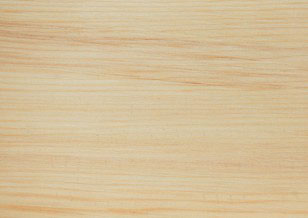
John Gay has emerged from the ignominy of insider trading to again become a player in Tasmania’s forest industry and in a new stoush over logging. Source: The Australian
Four years ago, the former Gunns Ltd timber boss became the most senior Australian executive convicted of insider trading, and was banned from running companies for five years.
A year later, Mr Gay persuaded a court to allow him to run a small family business, Specialty Veneers, that now owns two others — Corinna Timbers and Somerset Timber Supplies.
A recent government report suggests these companies have become key drivers of demand for “speciality timbers” including blackwood and rainforest species, such as celery-top pine and myrtle, behind only one other, Britton Timbers.
After decades of waste of rainforest timbers, often burnt after clear-fell logging, and of conservation lock-ups, these timbers are increasingly in short supply.
In response, the Tasmanian government has hatched a draft Special Species Management Plan, allowing logging in 420,000ha of rainforest and other old-growth reserves, including areas of the Tarkine protected by John Howard in 2005.
Environment, Aboriginal and community groups are gearing up for a fight. They want sawmillers and veneer makers, and as such, Mr Gay, to pledge not to accept timber from the reserves, which under the policy include regional reserves, conservation areas, forests protected under the 2012 Tasmanian Forest Agreement and informal reserves on forestry land.
Mr Gay, 74, said he would give no such guarantees.
“I’m not prepared to answer that question — I’ll see what happens,” he said. “I haven’t made any decisions.”
He said his businesses used mostly blackwood, the least scarce specialty timber, and only small volumes of celery-top pine, the species in shortest supply. And he blamed environmentalists for the shortage.
“Every (forest protection) deal that’s been done in the past has been not honoured and it’s been a creep and it’s nearly creeped that far that there’s not much (timber) left,” he said.
While backing the sector “very, very firmly” he was “too old” and too ill, suffering from bone cancer, and did not want to “lead the fight” or allow environmentalists to draw his businesses into the battle.
“I’m too old to play a grand final for a second time,” he said. However, his foes are not so forgiving.
“Logging 300-year-old trees from Tasmania’s rainforest reserves is enough to get most – people upset and activated, but knowing a controversial and discredited figure like John Gay now owns the mills set to most benefit from this plan takes it to another level,” said Wilderness Society campaign director Vica Bayley.
Much of the logging, which the government says will be “light touch”, will occur in the Tarkine, where some are fiercely opposed.
“As an Aboriginal community, we find it deeply upsetting because our old people watched those rainforests grow, cared for and nurtured them, and lived in harmony with them,” said Jarrod Edwards, land supervisor with the Tasmanian Aboriginal Centre.
Tarkine Wilderness Lodge owner Maree Jenkins said forest surrounding her lodge could be logged, threatening tourism.
“People are coming from around the world to the Tarkine rainforest and they are in awe of it,” she said. “They say ‘It’s so good that you’ve got this beautiful national park’ and I have to say ‘No, it’s not national park and it is still available for logging’,” Ms Jenkins said.
A call for comment on the draft plan closed this week.
The government, which defends the policy as providing resource security while logging reserves “sustainably”, will adopt a final plan by October 21.





